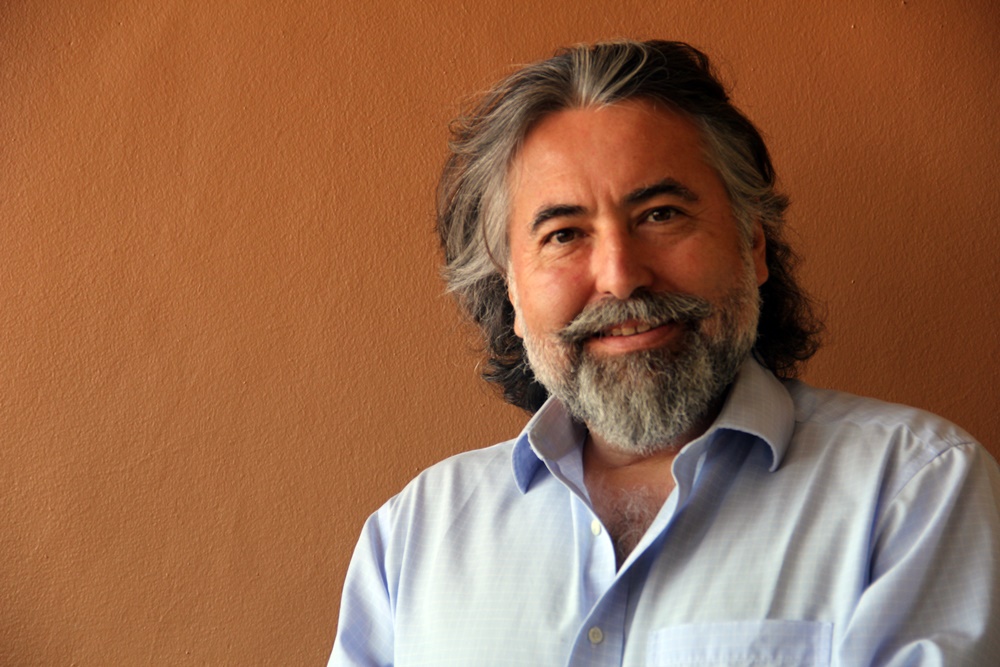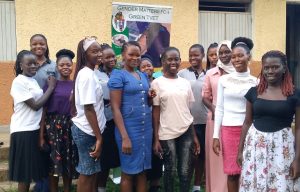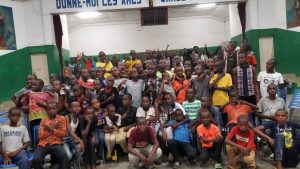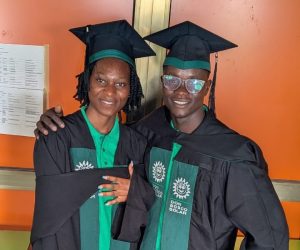Interview with Carlos Rodrigo Sáez-Muñoz, Secretary General and Director General of the Worlddidac Association
Last week, the Media Department of the Salesians of Don Bosco in the Africa of the Great Lakes Province (Burundi, Rwanda, and Uganda) had the opportunity to meet with Dr. Carlos Rodrigo Sáez-Muñoz, the Secretary General and Director General of the Worlddidac Association. The discussion included potential partnerships between the Worlddidac Association and Salesians of Don Bosco, as well as topics such as TVET education. Below are highlights from the interview.
Can you tell us about the history and mission of the Worlddidac Association?
The Worlddidac Association was founded 72 years ago with the aim of bringing together companies that produce products in support of education. Initially, our focus was on traditional classroom essentials such as desks, blackboards, and chairs. However, as education has evolved, so has our organization. Today, we represent a diverse range of companies that produce cutting-edge educational technology and equipment to support modern learning environments. We now work with companies that produce products such as megatronics, VR technology, and advanced laboratory equipment to support training in a wide range of fields, from electricity to renewable energy. Our goal is to help educators and students access the tools they need to succeed in a rapidly changing world.
You have been here in Rwanda and you visited the Salesians of Don Bosco. What was the purpose of your visit?
Don Bosco is an organization that we at the Worlddidac Association greatly admire for its values and mission. We appreciate their dedication to providing education to those less fortunate, including access to all levels of education and technical vocational education and training (TVET). We believe that their mission is crucial in promoting human dignity and empowering individuals to support themselves and their families, ultimately contributing to the development of a peaceful society.
When we have societies where young people do not have access to education, therefore do not have access to technical skills, and therefore do not have an access to forming a family, you end up with societies that ultimately live in violence. Young men calm down once they establish a family and I think this is important and I think Don Bosco saw that and through his work in its continuous evolution continues to try to help and ameliorate conditions.
As a result, we are eager to assist Don Bosco and are exploring potential collaboration opportunities with them. Our organization primarily works with companies that provide digital training, including in areas such as welding. Training welders can be costly due to the need for various expensive consumable goods. By incorporating digital tools, such as virtual reality technology, we aim to reduce training costs by a significant margin, potentially cutting expenses by one third or even two thirds. This cost-saving measure would allow for greater efficiency and productivity in training programs.
Can you discuss how virtual reality could be integrated into teaching TVET programs, considering the current technological advancements in the world?
First and foremost, I want to emphasize the crucial role that teachers play in education. It is important to recognize that digital tools, such as virtual reality, should not be seen as replacements for teachers. Teachers are invaluable because they are able to connect with students on a personal and emotional level. Many individuals have shared stories of how a great teacher influenced their lives and guided them towards new opportunities. In the African context, UNESCO has highlighted the need for more teachers, with a current 7.3 million teachers and a projected need for an additional 15 million by 2030. This number seems unattainable, underscoring the central importance of teachers in education.
So, what steps should we take? Our population is very young and rapidly growing. Simply increasing classroom sizes is not a viable option for teachers, as they may struggle to effectively connect with larger groups of students. Therefore, it is essential to provide teachers with proper training and tools that will enable them to effectively engage with a larger number of students. Additionally, connecting teachers with support infrastructure and utilizing digital technologies can help bridge the gap. Virtual reality (VR) technology can serve as a valuable educational tool in this process. It is a tool that teachers can implement to reduce costs, to provide new experiences that given geography and time restraints are inaccessible to students. I think VR will go far in aiding the educational systems in Africa and achieve what it needs to do which is leave no child behind.
You have been at DB Tech Africa. What have you reached as agreement with Don Bosco Tech Africa?
That is something that I’m not prepared to really comment, I need to give it much more thought and the reason for that is that on a personal level I come from geopolitics, history, international relations. I am only just now beginning to learn about technical education and I come from a country, Switzerland, which is where I currently live and I’m based, where only 20% of high school graduates go on to university. 80% of young people are diversed into technical and vocational trainings and we have a society with less than 3% unemployment, which any economist will tell you is full employment.
Therefore, for me technical vocational education is what we need for multiple reasons. One, it permits people to begin a job immediately. It permits young people to begin saving for one day retiring and if they go the full university, master’s, PhD, you’re delaying that by four years, six years or 12 years, which is a tremendously long period of time that requires tremendous pressure and where the outcomes are uncertain.
Do you see the possibilities here in Rwanda, especially in TVET, where you can work together with Salesians?
We would love to work with the Salesians. First, your mission is an incredibly important one. And like I said earlier, it is important that we give young people the tools with what I would like to describe as stackable degrees or stackable certificates, where a student comes, takes a two-week course and can turn around and get some kind of employment that permits him to feed himself. And he can come back, add to that with further courses and further specializations. For example, let’s consider welding. Although I may not be an expert in the field, let’s start with arc welding. Training someone in arc welding doesn’t require a significant amount of time, but it serves as a foundational skill. There are various other types of welding and skills that can be acquired with time and practice, but we primarily focus on training arc welders. Rwanda needs skilled arc welders. Additionally, if Rwanda is in need of electricians, it will also require plumbers. As Rwanda aims to become a leading country in implementing green energy solutions, it will need skilled plumbers to construct the necessary pipe systems that will connect electrical systems and install photovoltaic panels and wind turbines. By addressing its energy needs in a sustainable manner, Rwanda can avoid exacerbating the imminent challenges posed by climate change.
Have you visited some of the Salesian TIVETs?
No, unfortunately I have not visited your TIVETs. I have met with Don Bosco, both in Nairobi and here. I would like to have a follow-up trip so that I can visit your facilities, not only here in Kigali, but also in the South Province. I love this concept of prioritizing TVET education.
Some of the challenges include poor infrastructure. How do you address that issue when you are supporting similar schools with such circumstances?
Well, that’s a new challenge that I am studying, seeing how we can go about it. The United Nations, UNESCO offices, UNIDO, UNICEF, they’re all working and trying to resolve these issues. The World Bank is another important actor in all of these things. But how can I say it? The lack of infrastructure is, yes, a tremendous challenge, but it’s also a tremendous opportunity. Penetration of telephones in Africa prior to 1994, 1995, was very low. Why? Because you hadn’t in place the copper lines to connect every home in the country to a fixed line telephone. Suddenly, technology changed. Cell phones arrived, mobile phones arrived, and suddenly the penetration of communication devices is tremendous. Data is a big challenge. Delivery of constant quality electricity is a big challenge. But these are also opportunities. We need to look at new technologies that are in the near horizon and see where solutions that work well for Rwanda’s reality. I think the most important aspect, the biggest challenge is goodwill and a desire for education. And the one thing I have seen in Rwanda, in my interactions with Rwandese people of all stations, whether it’s the minister of education, a brilliant woman, by the way, or it is with people painting black and white the street, is that they want to find opportunities. They project themselves to a future. They want their children to study and do better. And it’s that world perspective that I think is the greatest asset that Rwanda has. And it’s the kind of asset that can bypass, that can overcome the challenges that you just pointed out, the infrastructure, will come.
I think the biggest challenge is one that you have already defeated, which is a mindset that education is the way forward.
Going to the end, do you have some partners here in Rwanda?
I would like to establish a partnership with Don Bosco, which is the principal reason I am here. I would like to establish a partnership with the ministry of education. Minister of education is a brilliant person with great vision. And whenever we come to a country, I think it is important to respect the government, understand what their needs are, how to project and for us to understand how we can support those needs. Again, we also believe that it’s important to have a dialogue with industry because they are the ones who are going to be hiring those who come out of TVET education. So aligning the educational model and the industrial needs in a way that is coherent and provides opportunities to young people who are being trained by you is an important role and one that I think my association can do very successfully.
We are a good actor in that respect. And also, it is important that the technologies that you access that are developed in Rwanda are current technologies that are future proof for the next 10 years. Because when you’re investing in digital solutions, for example, you want to know that that solution is not already obsolete. It needs to be cutting edge. Because otherwise, you end up with a solution that doesn’t work for the educational establishment, for yourselves. It doesn’t work for the young people that are being trained and it doesn’t work for the industry that will hire them eventually.
How do you work with organizations? Do you charge them some amount of money or resources to work with?
The Worlddidac Association is composed of members who are often for-profit companies. Not all of them. We also have not-for-profit members. We have universities that are members and other types of institutions. And my vision is sustainability. You can have a project that’s sustained by donations for a very short period of time. It can be the spark that starts a fire. But for long-term sustainability, I’m also of the opinion, and this is a new development in my thinking, that you need to be able to generate some type of profit because you need to pay the salaries of these young people, you need to pay the salaries of the professionals who are giving of themselves, and you need to maintain the interest. It’s wonderful if you build a train line from point A to point B, but if that train line doesn’t go into the conceptualization of that train line, you do not see a timeline or a life for it. Beyond three to five years, well, you’ve just spent a tremendous amount of pressure on something that doesn’t work. So in the conceptualization of any project, and particularly an educational project, it needs to have seed money that eventually needs to be self-sustaining. And some financial scheme needs to be there. And I’m not talking about a profit system that necessarily extracts wealth. I’m talking about a system that permits the educational institution to maintain itself, to reinvest into a continued future. And that’s, I think, a value system that our members recognize and are willing to support. And how long has Bosco been around for? And it is because it understands this. And the good that you have done is undeniable. It wouldn’t be in 153 countries. As a respected institution, as a leading institution, and we see a partnership with Don Bosco as something that permits us to also aid people in 153 countries. The Worlddidac Association is the only worldwide international educational association. We want to make an impact in improving people’s lives and we want to have a presence in East Africa. We believe this is a great launching place to develop strong, long-lasting relationships.

SUBSCRIBE TO OUR NEWSLETTER




